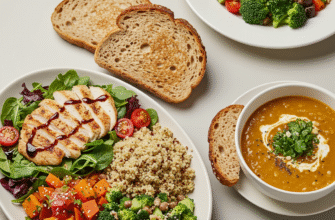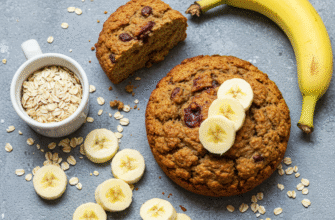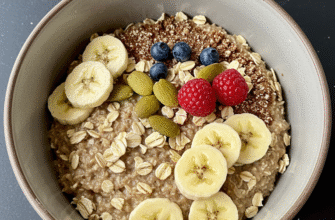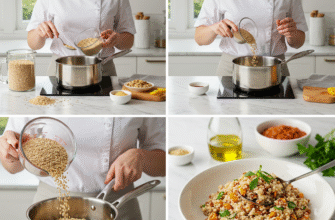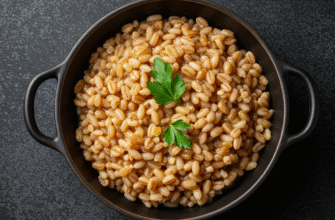Ever feel a bit sluggish or notice occasional muscle twitches? While many things can contribute, sometimes it’s worth looking at the unsung heroes in our diet. One mineral that often flies under the radar but packs a punch for overall well-being is potassium. It’s not just about bananas, although they certainly get a lot of the credit. Getting enough potassium through a variety of foods can make a surprising difference in how you feel day-to-day.
Think of potassium as a key player in maintaining balance within your body. It works hand-in-hand with sodium to manage fluid levels inside and outside your cells. This intricate dance is crucial for everything from nerve signals firing correctly to muscles contracting smoothly. When this balance is right, your body just tends to function better, helping you feel more energized and less prone to those annoying little cramps, especially after activity.
Why Focus on Potassium-Rich Foods?
Including foods high in potassium isn’t about chasing a magic bullet, but rather about supporting your body’s natural processes. A diet rich in fruits, vegetables, legumes, and certain dairy products naturally provides a good amount of this essential mineral. This whole-food approach is generally preferred over relying solely on supplements, as you also get the benefit of fiber, vitamins, and other phytonutrients bundled together.
Many people don’t get the recommended amount of potassium daily. Modern diets, often higher in processed foods, tend to favour sodium over potassium, potentially disrupting that crucial balance. Making a conscious effort to incorporate more potassium sources can help counteract this and support your body’s equilibrium. It’s about nourishing yourself with foods that work synergistically.
Exploring Potassium Powerhouses
Let’s move beyond the banana myth – while a medium banana offers a decent dose (around 400-450 mg), many other foods are even richer sources. You might be surprised!
- Leafy Greens: Spinach and Swiss chard are champions. A cup of cooked spinach can provide over 800 mg! Try sautéing them with garlic or adding them to smoothies and soups.
- Root Vegetables: Potatoes and sweet potatoes are fantastic sources, especially with the skin on. A medium baked potato can offer upwards of 900 mg. Just be mindful of preparation – baking or roasting retains more potassium than boiling.
- Legumes: Beans like kidney beans, white beans (navy, cannellini), and lentils are packed with potassium, plus fiber and protein. A cup of cooked white beans can deliver over 1000 mg. They are versatile additions to salads, stews, and dips.
- Fruits: Besides bananas, think avocados (a whole one can have nearly 700-900 mg depending on size!), oranges, cantaloupe, honeydew melon, and dried fruits like apricots and raisins (though be mindful of their concentrated sugar).
- Dairy and Alternatives: Yogurt, particularly plain Greek yogurt, is a good source. Some plant-based milk alternatives are fortified, but check the labels.
- Fish: Certain types of fish, like salmon and tuna, contribute a helpful amount of potassium to your diet.
Did You Know? Potassium is classified as an electrolyte because it carries a small electrical charge when dissolved in body fluids. This charge is essential for activating nerve impulses and muscle contractions. Maintaining adequate potassium levels helps support these fundamental bodily functions for overall vitality.
Simple Swaps and Additions
Boosting your potassium intake doesn’t require a complete dietary overhaul. Small, consistent changes can make a big difference over time. Consider these simple ideas:
- Swap your usual side dish for a baked potato or sweet potato (skin on!).
- Add a handful of spinach or kale to your morning smoothie or omelet.
- Snack on an orange, a small banana, or a handful of dried apricots instead of processed snacks.
- Incorporate beans or lentils into your meals a few times a week – think chili, lentil soup, or bean salads.
- Choose yogurt as a base for dressings or enjoy it with fruit for breakfast or a snack.
- Top your salads with avocado slices or sunflower seeds (another sneaky source).
- When cooking vegetables like potatoes or greens, try steaming, roasting, or sautéing instead of boiling them in lots of water, which can leach out potassium.
Listening to Your Body
While severe potassium deficiency is uncommon in generally healthy individuals eating a varied diet, consistently low intake might contribute to feeling generally fatigued or experiencing more frequent muscle cramps. It’s not about self-diagnosing but rather being mindful of how dietary patterns might influence how you feel. Focusing on potassium-rich whole foods is a proactive way to support your energy levels and muscle function naturally.
Remember, balance is key. Drastically increasing potassium intake, especially through supplements without professional guidance, isn’t recommended. The best approach is always to obtain nutrients from a diverse range of whole foods. Eating fruits, vegetables, legumes, and other potassium-packed options contributes not just potassium but a wealth of other beneficial nutrients that support overall health and well-being.
Beyond the Basics: Potassium’s Wider Role
While we’ve focused on fluid balance and muscle function, potassium’s influence extends further. It plays a part in carbohydrate metabolism, helping your body utilize energy efficiently. It’s also involved in transmitting nerve signals throughout your body, which is fundamental for communication between your brain and various organs and tissues. Think of it as part of the body’s complex internal communication network.
Incorporating potassium-rich foods is less about isolating one mineral and more about embracing a dietary pattern that naturally supports these intricate systems. When you choose a baked sweet potato over fries, or add lentils to your soup, you’re making choices that ripple outwards, benefiting multiple aspects of your body’s functioning. It’s a simple, food-first approach to feeling your best.
Important Consideration: While dietary potassium from foods is generally safe for healthy individuals, people with certain kidney conditions may need to monitor their potassium intake carefully. Always prioritize obtaining nutrients from whole foods. If considering significant dietary changes or supplements, consulting with a healthcare professional or registered dietitian is advisable, especially if you have underlying health conditions.
Making potassium-rich foods a regular part of your meals is a straightforward strategy for enhancing your daily vitality. It’s about fueling your body effectively with the nutrients it needs to perform its essential functions smoothly. From supporting muscle comfort to contributing to nerve signaling, this mighty mineral, found abundantly in delicious whole foods, deserves a prominent place on your plate.
“`



